Go beyond the scoreboard
Get the latest on L.A.'s teams in the daily Sports Report newsletter.
You may occasionally receive promotional content from the Los Angeles Times.
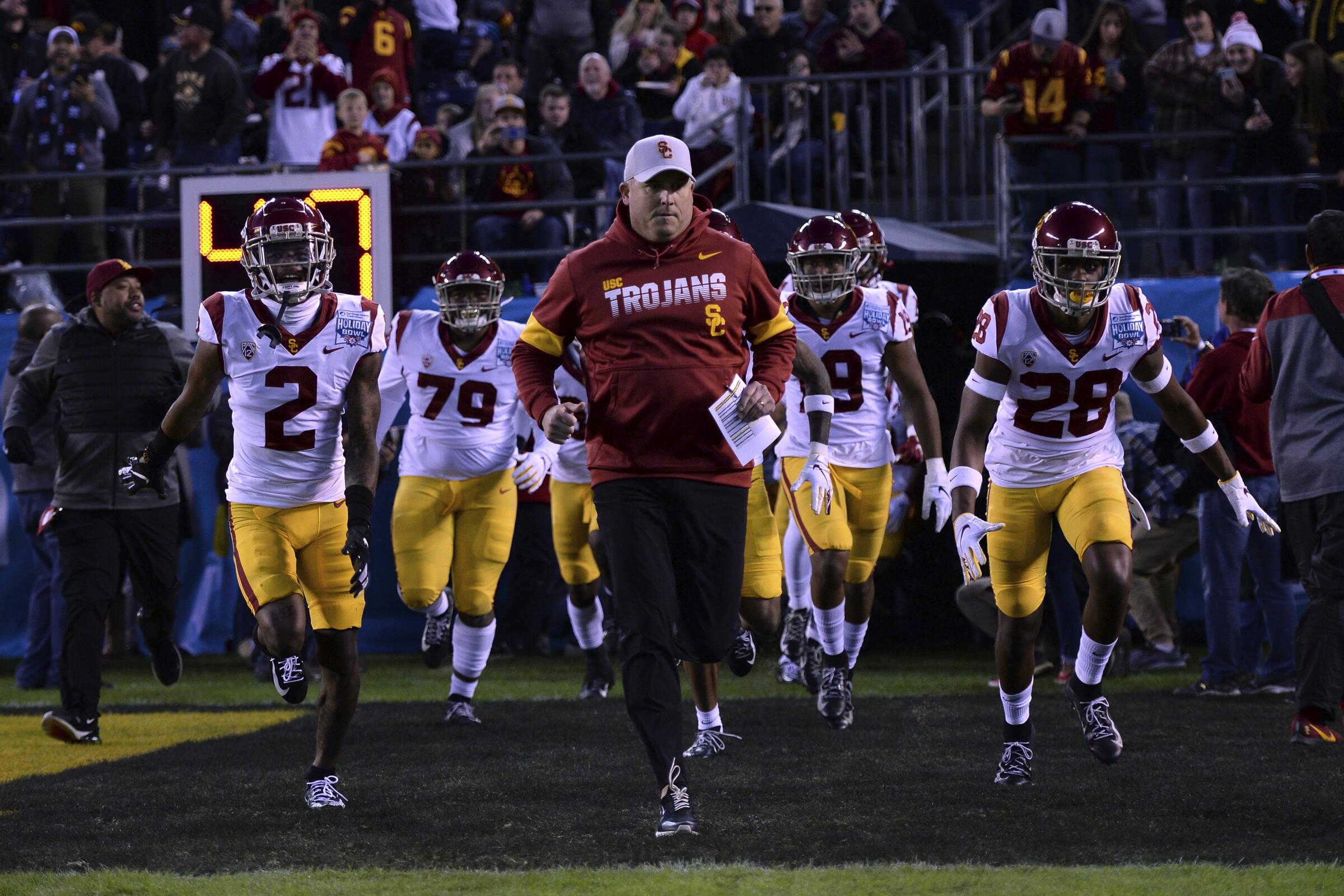
Before uncertainty reigned, the conditions of Clay Helton’s return were clear. With new bosses, a new staff, and new resources to reinforce his program, 2020 was going to be a consequential season for USC’s football coach.
Circumstances have changed quite a bit since, with a global pandemic putting his prove-it season on indefinite hold since August, when the Pac-12 Conference first voted to postpone.
But with the season now set to restart in early November, following a vote of Pac-12 presidents and chancellors Thursday, the attention now turns back to the Trojans’ embattled coach.
Are seven games enough to prove he has USC on the right path? His Trojans have the talent to be the class of the Pac-12’s shortened season. But reaching that potential requires answering a few pertinent questions first, the most prevalent of which begin with the man atop the program.
Pac-12 Conference university presidents and chancellors voted Thursday to start playing a seven-game season on Nov. 7.
“Our future is bright,” Helton said in December, after he was retained. “We have a young team on the verge of doing something special.”
The clock is now officially ticking on his chance to prove it.
Here are five questions facing the Trojans as they prepare to start training camp:
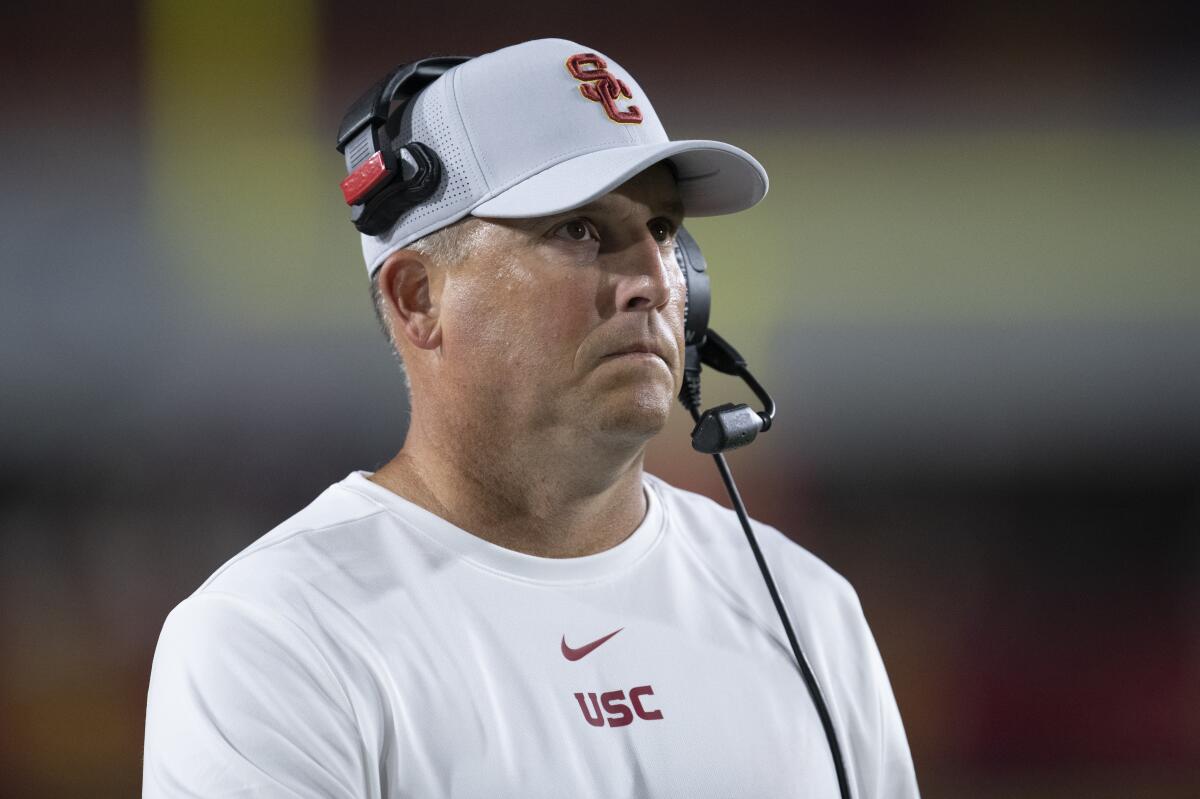
His seat was scorching hot when Helton was last seen coaching from the sideline at the Holiday Bowl. Since that 49-24 loss to finish an 8-5 season, USC hired two new coordinators, revamped the entire defensive staff, retooled its recruiting operation, and generally seemed to get its ducks in a row.
Whether that’ll be enough to save Helton remains to be seen. The longest-tenured Trojans coach since Pete Carroll boasts a 40-22 record (13-12 the last two seasons) heading into his fifth full season as head coach, and it was widely believed he needed 10 wins this season to earn a sixth.
Not even a spotless season would be enough to reach that mark now, making the impending question on Helton’s status a more subjective one: What exactly constitutes progress?
It’s impossible to say at this point. But considering the financial implications of the pandemic on college athletics, the presence of Helton’s buyout — believed to be around $20 million last year — could mean the status quo is enough to ensure his return.
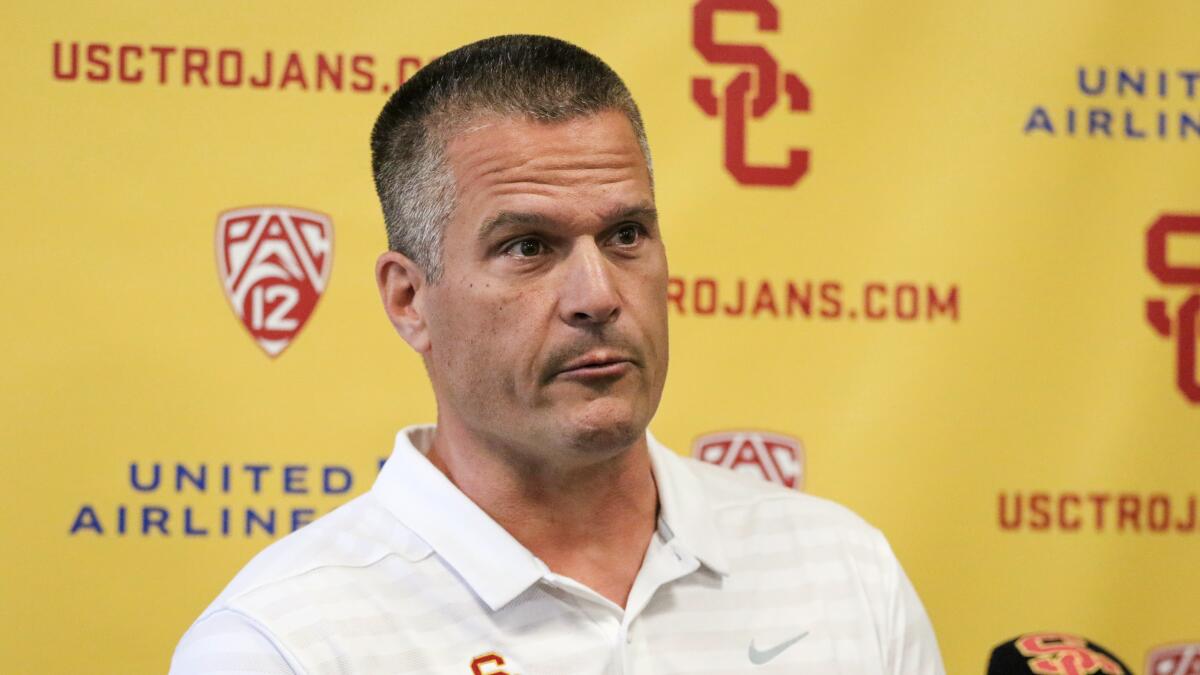
When he was first introduced last spring, new coordinator Todd Orlando promised to bring USC’s defense to “a dark place.” But for the last six months, Orlando couldn’t even bring his entire defense into a single meeting room.
Instead, the Trojans learned most of their new defensive scheme over Zoom, while a fleet of new assistants figured out their position groups on the fly. The circumstances have hardly been ideal for rebuilding a defense that has underachieved in recent years.
But the talent is there for Orlando’s defense to excel from the start, with potential All-Pac-12 players in the front seven and secondary. How those pieces will fit in Orlando’s new puzzle, though, is a mystery.
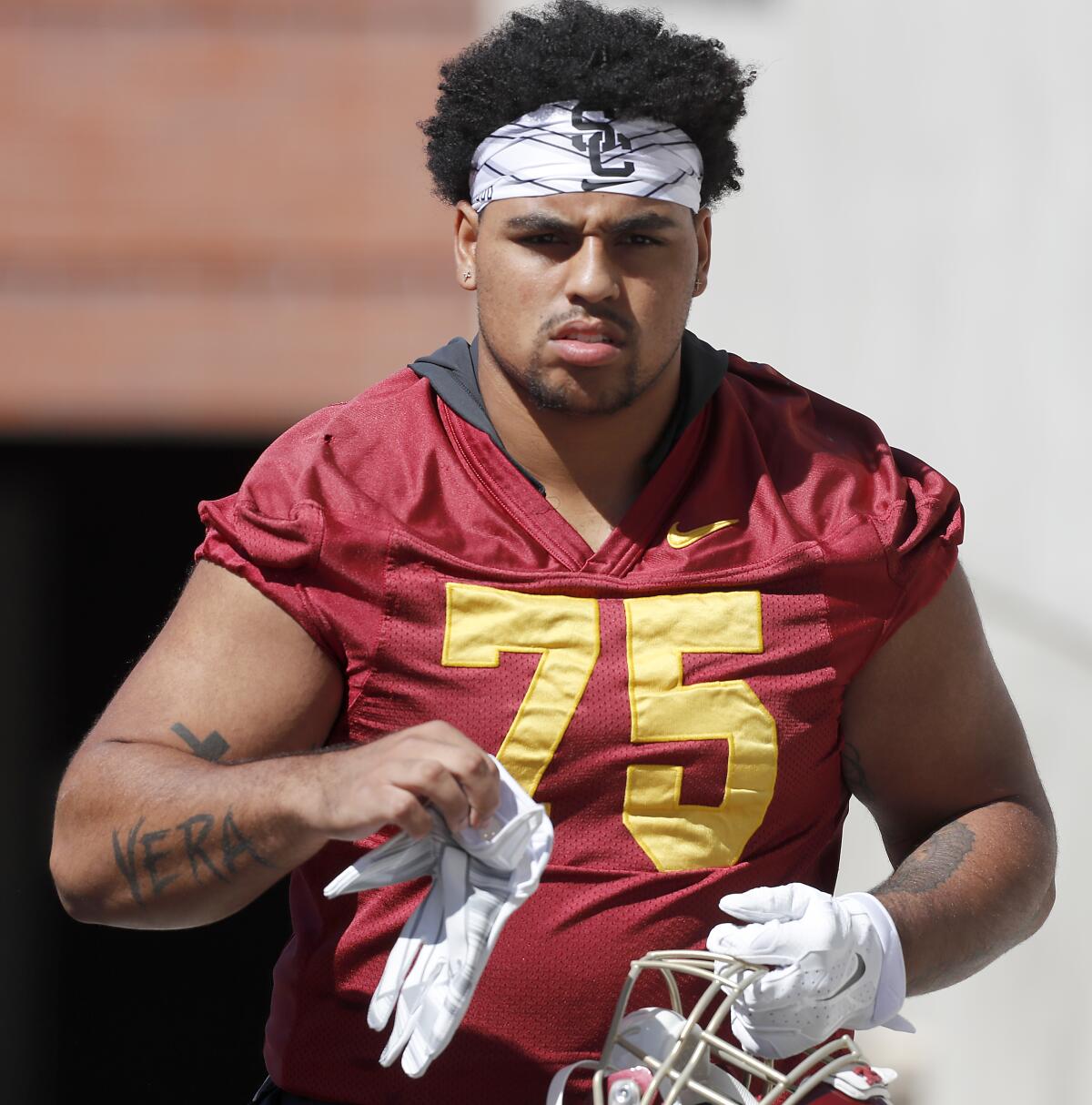
Last year’s left tackle, Austin Jackson, is now starting for the Miami Dolphins. Right tackle Drew Richmond ran out of eligibility. Then, in the most crushing blow yet, the Trojans’ top interior lineman, Alijah Vera-Tucker, opted out of this season to prepare himself for the upcoming NFL draft.
USC was already thin up front prior to that sequence of events.
Most glaringly, the Trojans don’t have any obvious replacements at left tackle, where Vera-Tucker was slated to slide to before his departure. With the season restarting, there’s a small chance Vera-Tucker could reverse course and return, but if he doesn’t? USC might be looking at a freshman anchoring the left side of its line.
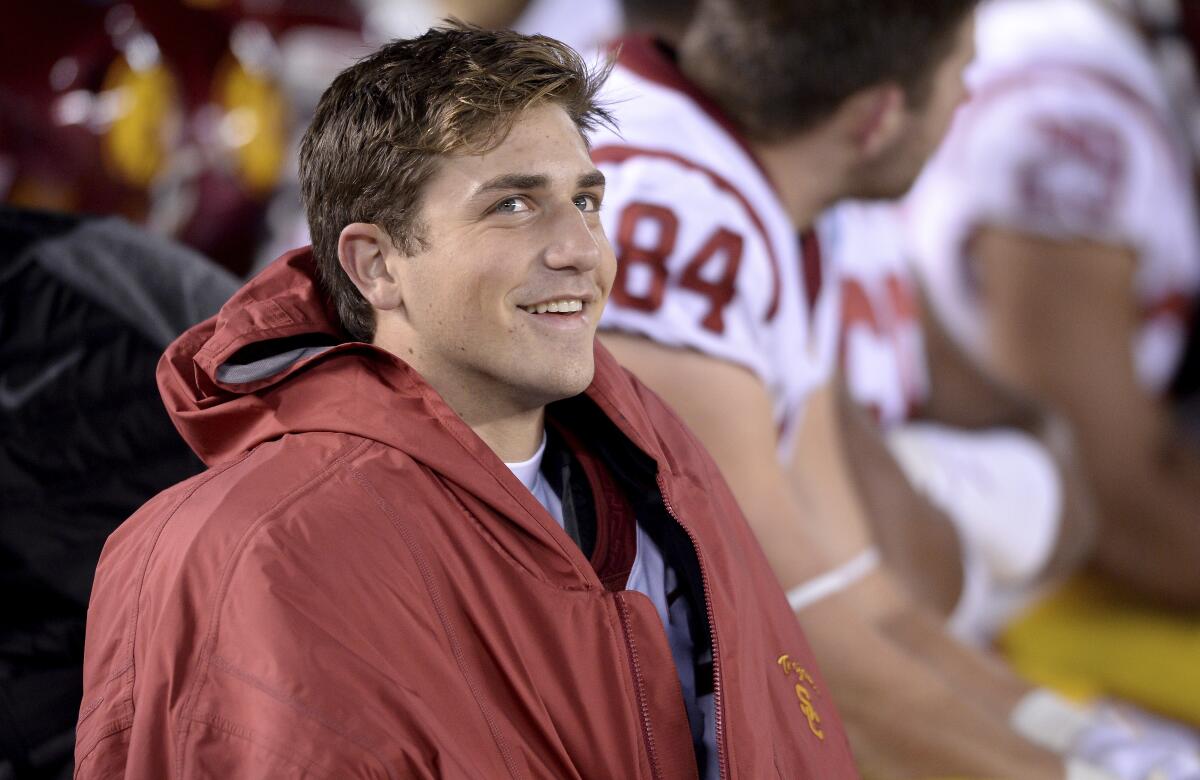
Even before Kedon Slovis emerged as a potential Heisman Trophy contender, offensive coordinator Graham Harrell made clear that his Air Raid offense would take a major leap from Year 1 to Year 2.
If that’s the case for USC’s quarterback, Slovis could be on his way to stardom as a sophomore. His completion percentage last season (71.9%) was the highest recorded by a freshman in college football history, while his passer rating (167.1) was the highest ever by a USC signal caller.
Considering how many weapons he’ll have at his disposal, even with the departure of top wideout Michael Pittman Jr., Slovis could find himself in New York vying for the Heisman. Assuming, of course, his rebuilt line keeps him upright.
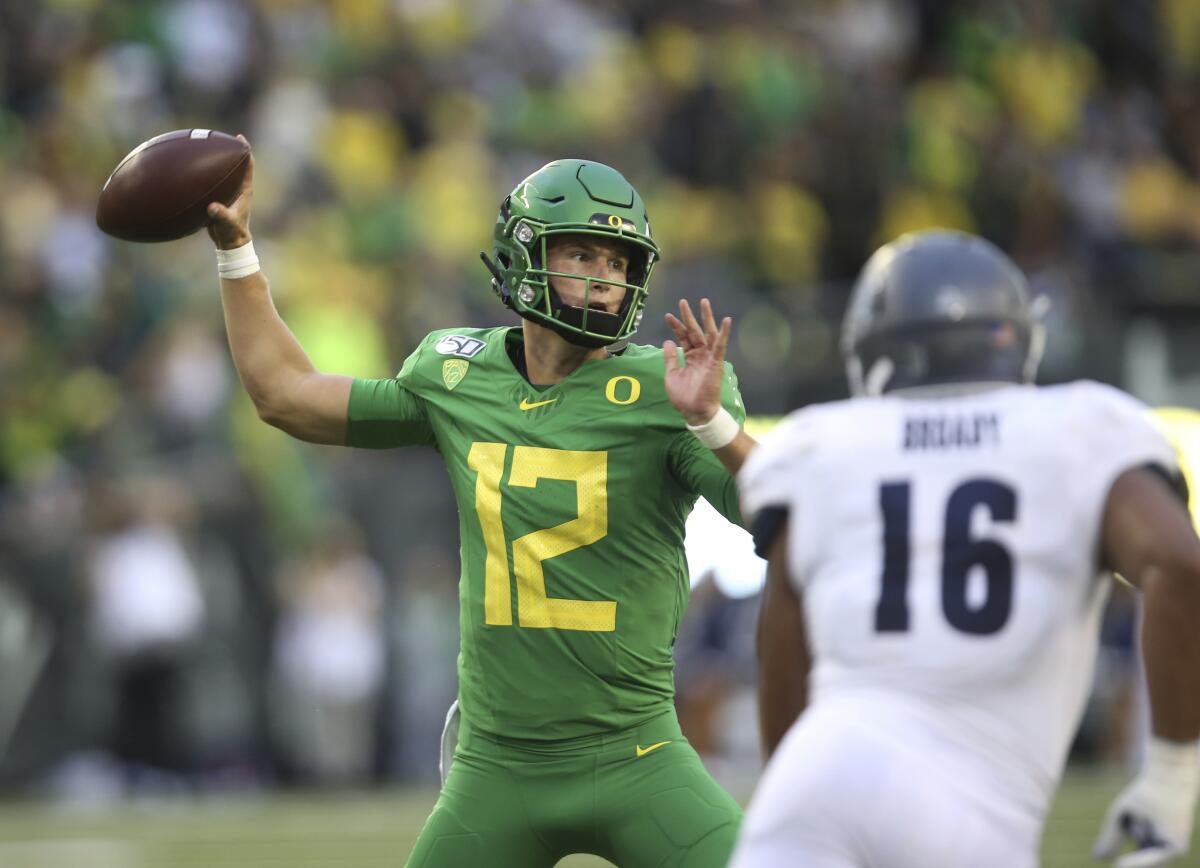
On paper, that certainly seems an attainable goal. The Trojans will have the conference’s top quarterback leading a talented offense that finished among the most dynamic in college football last season.
USC will have to count on its retooled defense taking a step forward. But with several Pac-12 contenders in the process of rebuilding, this season seems like an ideal window to take that next step. Oregon, the class of the Pac-12 in recent years, is set to start a new quarterback, Tyler Shough. Utah, which won the Pac-12 South the last two years, is expected to take a step back.
A shortened season could help that cause even further. But with fewer opportunities, the margin for error for Helton and Co. will be thinner than ever.
Go beyond the scoreboard
Get the latest on L.A.'s teams in the daily Sports Report newsletter.
You may occasionally receive promotional content from the Los Angeles Times.